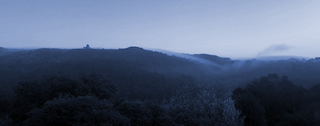
by Jennifer Krebs | May 16, 2019 | Books
Truth in Our Times: Inside the Fight for Press Freedom in the Age of Alternative Facts, David E McCraw
While still in the preface, I was so upset by McCraw’s questions about the fate of the US, I almost put the book down. I’m glad I persevered because the New York Times on a day-to-day basis is a fascinating place. McCraw, a former journalist, is a NY Times lawyer. As the book blurb on the publisher’s website states: “If you’ve read a controversial story in the paper since the Bush administration, it went across McCraw’s desk first. From Chelsea Manning’s leaks to Trump’s tax returns, McCraw is at the center of the paper’s decisions about what news is fit to print.” McCraw tells a very good story. For me the main take-away is that the blurring of fact and propaganda is a constant in our society.

by Jennifer Krebs | May 16, 2019 | Books
Madame Foucade’s Secret War, by Lynne Olson
I picked this book up after reading the New York Times’ review of it, which used words like “fast-paced” and “gripping” as well as “impressively researched.” I wasn’t so gripped (more later), but definitely intrigued enough to finish the book.
Marie Foucade (as well as her two husbands and a wartime lover) was a French spy for the British intelligence service. She was not a Gaullist, and largely post World War II (as we learn in the afterwards), it was primarily the Gaullist resistance that was credited as heroic (the Communists had their own lists publicized by their party). Foucade was a right-leaning anti-Fascist/anti-Nazi from an upper crust background.
Foucade selected and trained dozens of agents from all walks of life. She lead an entire section: gave assignments, dealt with captured comrades, saw many of her team arrested, tortured, killed. She escaped from prison herself. Though she was afraid that comrades wouldn’t respect her because she was a woman, largely this was not born out. She was trusted and revered by the British, her French comrades, and eventually post-war, the French nation. Chirac ok’ed her burial in Les Invalides in Paris, where Napoleon and other French military heroes are buried. There are few other women buried there – she was the first.
In spite of the eventful life she read, the book was a bit too “and then…” rather than moved by her motivations. Maybe I’ve been reading too much Robert Caro. It was only in the post-script that I learned that she was a rightist. Perhaps I was dense not understanding that since she had money and personally knew DeGaulle and Reynaud, top brass from the elite French military school, she must have leaned right. Anyhow, I would have appreciated a bit of background earlier in the book about the politics swirling in pre-war, early occupation France.

by Jennifer Krebs | Apr 27, 2019 | Books
All I can say is TMI on Steve Jobs. Yes, he’s an interesting character…but I didn’t realize that he’d appear on every other page of this memoir. Next time, a book more about actual small fry or French fries or who Lisa Brennan Jobs is without her dad.

by Jennifer Krebs | Apr 16, 2019 | Books, Uncategorized
The Savage Detectives, by Roberto Bolaño, a fantastic counterpoint to Asymmetry, by Lisa Halliday. Both in 3 parts. Both about the process of writing, dialogs/beefs/paeans to other writers, and both set in a variety of locales. While Bolaño is, at times, coarse & tedious in a young man’s voice (sex, drugs, profanity), and at other times very funny (a woman who spends the takeover of the University of Mexico in a bathroom stall, the story of which goes viral in pre-internet terms). I suppose I was also partial to the book as the characters are traveling (escaping) around the world in the 1970s (mainly), when I was also visiting some of the same locales. And Bolaño does a great job bringing Mexico City to life. So much so, that I’m ready to go again. Maybe some day my Spanish will be good enough to read The Savage Detectives in Bolaño’s language. I’m sure that would be an incredible treat.

by Jennifer Krebs | Mar 29, 2019 | Books, Uncategorized
I wonder if I would have enjoyed this book better had someone other than Sam Lipsyte read it. I can understand an author wanting the extra royalty, and so committing to read a work to be published as an audiobook. Maybe some have told Lipsyte that he’s a great reader. And, maybe in person he is a great reader. But, for me there was a lack of drama in this audiobook. You had to search for the important in what sometimes seemed like a barrage of clever words. While the book has a narrative arc, it’s mainly about day to day ups and down of married life with kids in LA ~2010, while trying to find a creative center and/or spiritual meaning amidst the cacophony of day to day routines. Many have liked it (according to reviews), for me, “meh.”





